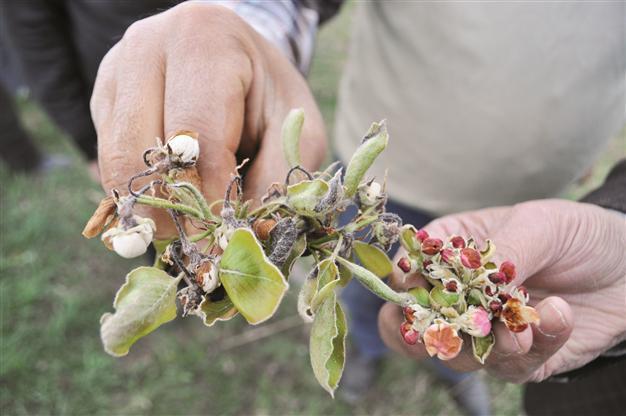Frost adds to farmers’ pains after dry winter
ANKARA

Fruit trees, especially apple and apricots, have been heavily affected by the frost. AA photo
Frost that hit a number of agricultural products at the end of March will likely result in a roughly 25 percent hike in market prices, sector representatives have said.
Heavy snow fell at higher elevations while temperatures occasionally dropped to minus 10 across Turkey, exacting a severe toll on a number of crops, particularly in the Black Sea, Central Anatolian and East Anatolian regions, Turkish Agricultural Chambers Union (TZOB) President Şemsi Bayraktar said yesterday in a written statement.
Analysts and sector representatives said a combination of frost and drought would lead to at least 25 percent hikes in affected produce while exports will also be hampered by falling production.
Bayraktar said tough winter conditions, including heavy storms and hail, experienced between March 29 and 31 had caused damage to fruit gardens, vegetable patches, areas of cereal cultivation, sugar beet fields and cornflower fields.
High temperatures and a lack of rain resulted in one of the driest winters in recent years in western and Central Anatolia.
According to Bayraktar, the winter drought resulted in an early blossoming for trees, negatively impacting their sensitivity against frost.
The Black Sea, where cold temperatures followed frost in higher elevations, was the heaviest-hit area, Bayraktar said, adding that the destruction in hazelnut and kiwi gardens in the region had reached up to 70 to 80 percent.
Meanwhile, in Central and East Anatolia, gain crops turned yellow while sugar beets and corn suffered from heavy frost.
Almost all apricot and apple trees in the eastern province of Malatya, which is known as the “apricot capital” because the province supplies 80 percent of the world’s apricot demand, also suffered damage from frost.
